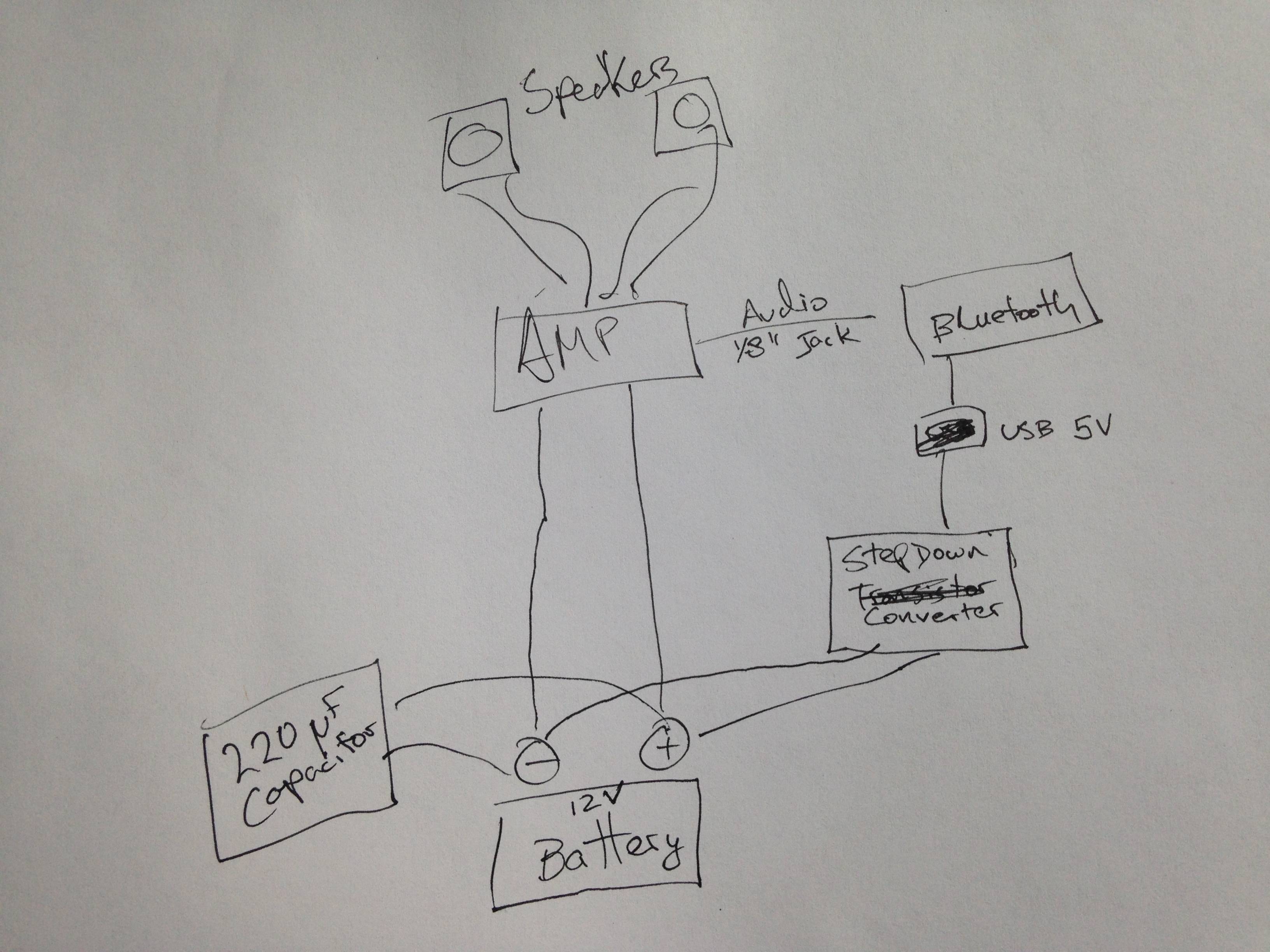i'm building a portable stereo system and am having some unwanted noise from the bluetooth receiver. the noise is typically a high pitched tone.
please see the attachment for my chicken scratch schematic.
the general setup is an amp connected to a 12V battery. there is also a step-down converter, connected parallel to the same battery, that goes to USB, which then connects to a bluetooth receiver that sends audio to the amp via an 1/8" cable.
i've tried adding a capacitor at 200µF to the battery terminals with no luck of eliminating the noise.
the high pitched tone goes away only when i power the bluetooth receiver from a separate power source.
I've ordered a ground-loop isolator, but haven't received it yet, so i figured if anybody can suggest something, that would be most excellent.
Also, I've tried subbing in alternate bluetooth converters, batteries, amps, and step-down converters, with no luck.

